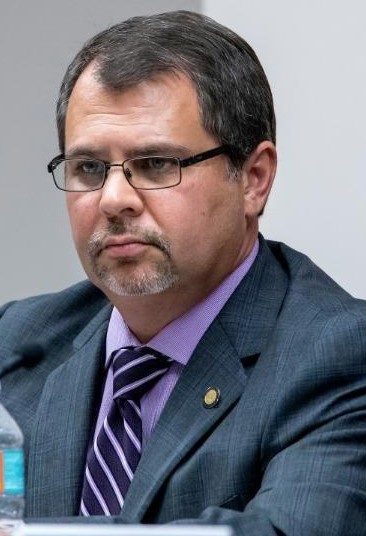
Wide-ranging house plan braces for next crisis

By Jim Turner
News Service of Florida
A series of proposals — from requiring the governor to justify closing schools and businesses to limiting the authority of local governments — have been lumped into a House bill aimed at bracing Florida for the next health-care crisis as it continues to grapple with the COVID-19 pandemic.
The House Pandemics & Public Emergencies Committee voted 14-4 last Wednesday to approve the measure, which also would require a state-owned stockpile of personal protective equipment and direct the state surgeon general to develop a plan to “ensure the state is prepared for every foreseeable public health emergency.”
Committee Chairman Tom Leek, R-Ormond Beach, said the effort seeks “to improve state preparation for a pandemic or public health emergency” and “ensure that our emergency management system and response efforts are as transparent and as accountable as possible.”
While the proposal is expected to move rapidly through the House, Sen. Danny Burgess, R-Zephyrhills, said this week the Senate Select Committee on Pandemic Preparedness and Response, which he chairs, has met for the last time.
Before advancing the bill, the House committee rejected several Democratic amendments, including proposals to limit pre-emption of local government authority and require the state to compensate owners and employees of any businesses closed by executive orders.
Rep. Carlos Guillermo Smith, an Orlando Democrat who described business closures last year early in the pandemic as “knee jerk,” said adding the monetary requirement to executive orders would bolster part of the bill that would require the governor to justify business or school closures.
“If they’re going to mandate a closure of an entire industry for a protracted period of time, reasonable compensation would be expensive,” said Smith, one of four Democrats who voted against the bill (PCB PPE 21-01). “So, it would certainly serve as the motivation to be very strategic with that closure and also be very intentional about the who and why we would be doing that, which is not what we’ve seen in the past.”
A House staff analysis of the bill said its fiscal impact would be “indeterminate,” noting the most significant requirement could be the requirement for the Division of Emergency Management to acquire and maintain an inventory of personal protective equipment. The agency also would have to replace the inventory as necessary to ensure supplies have not expired.
Other potential fiscal impacts could come from the Department of Health having to create a comprehensive public response guide for future crises and a requirement that the auditor general conduct reviews related to emergencies.
The committee also rejected an amendment that would have required the governor to use money in a proposed Emergency Preparedness and Response Fund before seeking to use money budgeted for other purposes.
Leek said if the amendment was in law last year, Gov. Ron DeSantis could have been blocked from shifting resources between state agencies to address the online unemployment system when it was overwhelmed by jobless claims.
The House measure, however, would require the governor to submit a budget amendment when redirecting money from general revenue or the Budget Stabilization Fund, which is a state reserve. It also would provide the Legislature with the ability to line-item veto parts of emergency orders.
The creation of the Emergency Preparedness and Response Fund is part of a separate bill (HB 1595) that the House committee backed without comment.
DeSantis has requested $1 billion from the state’s share of the $1.9 trillion federal American Rescue Plan Act go into the fund. A Senate committee last Tuesday also approved a bill (SB 1892) that would create the fund, though the House and Senate have not earmarked a specific amount of money for the fund.
The broader bill approved last Wednesday by the House committee would limit local states of emergency, which currently can be ordered for seven days and extended indefinitely in seven-day increments.
The House plan would allow narrowly tailored local emergency orders to be extended in seven-day increments for a total duration of 42 days.
Smith called the pre-emption of local emergency powers a “poison pill.”
“Mayors shouldn’t have to ask permission from Tallahassee in order to be the mayors that they were elected to be,” Smith said.
The House bill also would make the surgeon general, who is the secretary of the Department of Health, responsible for reporting the number of cases and deaths during emergencies and require district medical examiners to assist the state in identifying and reporting deaths upon request.
The proposal also would require that emergency proclamations and rules list state laws being amended or waived and set expiration dates and for the information to be posted online in a searchable format.
The bill also addresses an issue with public-service announcements that arose last April when the Florida Commission on Ethics rejected a request from Charter Communications to alter the state’s 16-year-old lobbyist “gift ban” as it sought to run public-service announcements about COVID-19 from DeSantis and other state officials on its Spectrum networks.
With the state officials appearing at events covered statewide by the media, the request was seen by members of the ethics commission as an opportunity to provide DeSantis and others with additional advertising.
The bill would limit such announcements to the governor, lieutenant governor, emergency management director, surgeon general, House speaker and Senate president. Leek said the intent of the proposal is to let those elected officials avoid a violation of gift laws.
House Minority Co-leader Evan Jenne, D-Dania Beach, asked Leek to include a provision that would ensure that information in public service announcements is “medically and scientifically accurate.”







